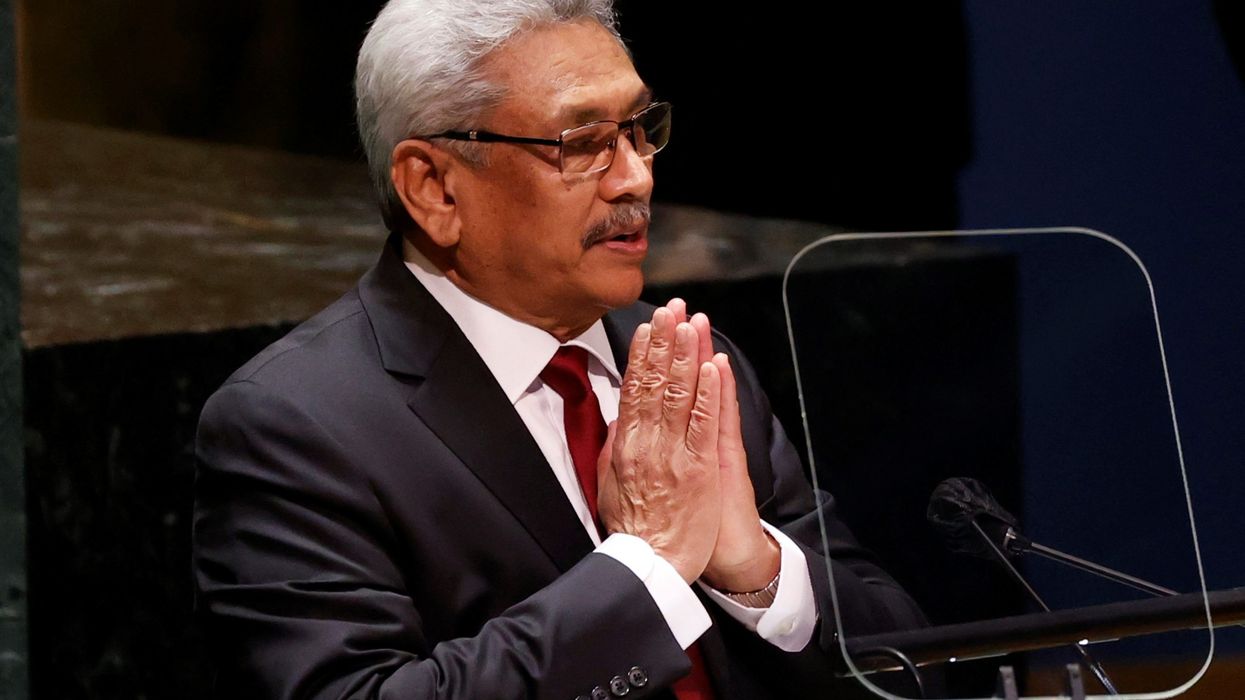Sri Lanka's president has effectively banned trade union action against a controversial energy deal with a US firm in an attempt to scupper dissent within his coalition government.
The Ceylon Electricity Board (CEB) last month agreed to sell a 40 per cent stake in its thermal power plant outside Colombo to New Fortress Energy, move trade unions say hands the US firm a monopoly over LNG sales to the country.
"We will have a mass protest rally on Wednesday bringing all our members out from power stations," said CEB trade union leader Ranjan Jayalal.
"If the government fails to remedy the situation by then, there will be a general strike."
Strikes by electricity unions usually lead to blackouts in Sri Lanka.
Gotabaya Rajapaksa's "essential services" order prohibits collective action across numerous public service sectors including energy, banking, and food distribution, and is aimed at curtailing possible work-stoppages backed by his disgruntled junior coalition partners.
The decree could send those who violate the order to prison for up to five years.
The deal, which according to the central bank will generate $250 million for Sri Lanka's cash-strapped state, has been slammed by Rajapaksa's coalition partners for having taken place behind closed doors and intensified fissures within the government.
"No government in the past had carried out a transaction like this in total violation of tender procedures," said petroleum minister Udaya Gammanpila, who leads a smaller nationalist party in Rajapaksa's cabinet.
Industries minister Wimal Weerawansa, another coalition partner, said he would give up his portfolio if the government finalised the New Fortress deal.
Rajapaksa left for the COP26 summit in Glasgow soon after the decree was announced.
Cracks in his two-year-old government surfaced as the country was gripped by protests from farmers demanding chemical fertiliser, which was banned earlier this year.
Faced with the prospect of crop failures and food shortages within months, the government relaxed an import ban on agrochemicals, but a foreign exchange shortage has prevented imports.
The foreign currency crisis has also led to shortages in imported milk powder, sugar, wheat flour as well as industrial raw materials such as cement.
(AFP)





